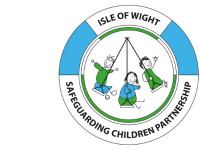Bereavement
What is bereavement?
Bereavement is the experience of losing someone important to us. It is most often used to describe losing someone because they have died, but bereavement can also refer to an important person moving away or becoming ill, or the loss or death of a pet.
Bereavement can often involve grief. Grief is the range of physical and emotional processes a person experiences during a loss or big change, such as someone important to them dying. Grief affects everyone in different ways, and there is no right or wrong way to grieve.
Different people may want or need different types of support following a bereavement, such as emotional support, practical help with daily life and responsibilities, or encouragement to keep up with self-care routines such exercising, sleeping and seeing friends.
For young people who have experienced a bereavement, you may want to ask them what would help them or use the links and resources on the following pages to find more advice and information. It can also help to let their school or college know what has happened and find out what support can be provided, as well as asking the young person what they would like to happen at school or college.
What are the impacts?
Young people who have experienced bereavement might feel:
- Worried or scared, including about their health, the health of people close to them, or other people that are important to them dying.
- Isolated or lonely.
- Sad or tearful.
- Withdrawn from other people or the activities they usually do.
- Angry or irritable.
- Guilty, especially after feeling positive or having fun.
- Numb or like they feel nothing.
- Shocked or confused, especially if the bereavement is sudden or unexpected.
- Mood swings.
- Physical illness.
- Relief, for example if the death followed a long illness.
- Difficulty concentrating or sleeping.
- Struggling to accept what has happened.
Grief has no set timescale, and young people may feel a range of emotions at different times following bereavement. YoungMinds has a guide for parents and carers that includes signs to look out for that may indicate a young person needs additional professional support following bereavement.
How to talk to your child about bereavement
This advice is adapted from YoungMind’s guide for parents and carers about Grief and Loss.
- Offer opportunities and space to talk about a bereavement and reassure the young person that they can talk to you whenever they need to.
- Use clear language when talking about death.
- Listen to how they are feeling and let them know it’s okay to feel however they feel, and that there’s no right or wrong way to grieve.
- If they tell you that they are blaming themselves, or you are worried they might be, reassure them that guilt is a common thing to feel after a loss – but that it is in no way their fault or responsibility.
- Share memories of the person who has died or been lost and talk about ways they can celebrate the person and mark important events, such as birthdays.
If a young person is struggling to talk, it might help to:
- Start a conversation while doing another activity, such as a walk or cooking together.
- As well as offering time together and opportunities to talk, give older children and teenagers space to be alone or chat to other relatives and friends.
- Encourage them to express their feelings in other ways, such as writing letters, drawing or painting, starting a journal or creating a memory box.
Parents and carers supporting a bereaved young person may also be impacted, and it is important to seek emotional support for themselves if needed. Mental Wellbeing Hampshire provides a range of information and links to local and national support.
Where can I get local advice and support?
Hampshire:
Simon Says – provides support for young people in Hampshire who have had a significant person in their life die. They have a Support Line, advice, and information, and run local support groups. Click here or call 023 8064 7550.
Hampshire CAMHS – has information about bereavement and loss on their website, as well as self-help booklets you can download and a list of apps that might help. Click here.
Isle of Wight:
Isle of Wight Youth Trust – supports young people through difficult times, through one-to-one support, drop-ins, counselling and groups. This service isn’t specifically for bereavement, but wellbeing in general. Click here.
Mountbatten – supports people on the Isle of Wight living with or affected by death, dying, or bereavement. They run a group for parents/carers and young people, which a GP or school can refer you to, or call 01983 217346. For more information click here.
Hampshire and the Isle of Wight:
Amparo – if the bereavement is by suicide, Amparo provides support for anyone affected by suicide in Hampshire and the Isle of Wight: Click here or telephone 0330 088 9255.
ChatHealth – is a way to text a school nurse to find out about local services and get confidential help and support. Text: 07507 332160. The service is available Monday to Friday from 8:30am to 4:30pm (excluding bank holidays). If you live on the Isle of Wight, or would rather speak to someone face-to-face, you can ask your school or college about their nursing service.
Where can I get more advice from national resources?
| Link and /or QR code | Description |
| Grief & Loss | Parents Guide To Support
Tel: 0808 802 5544 |
YoungMinds has a parent’s guide to grief and loss as well as a helpline and webchat for parents of young people struggling with their emotional wellbeing. They also provide advice and information on grief for young people. |
| Supporting bereaved children and young people
Tel: 0808 802 0111 |
Grief Encounter supports bereaved young people. Their website can give you information about what grief may look and feel like, and they offer a Grief Talk helpline. |
| Giving hope to grieving children
Tel: 0808 802 0021 |
Winston’s Wish supports children, young people, and their families after the death of a parent or sibling. |
| Support for grieving young people | Help 2 Make Sense includes stories from other young people, advice, and different ways to manage grief like books and games. |
| Hope Again | Hope Again is a website for young people run by Cruse Bereavement Support. They provide a safe space to learn from others, get advice on coping with grief, and to feel less alone. |
| Child Bereavement UK | Child Bereavement UK helps young people and their families rebuild after a death. They provide one-to-one and group support as well as videos and advice. |

